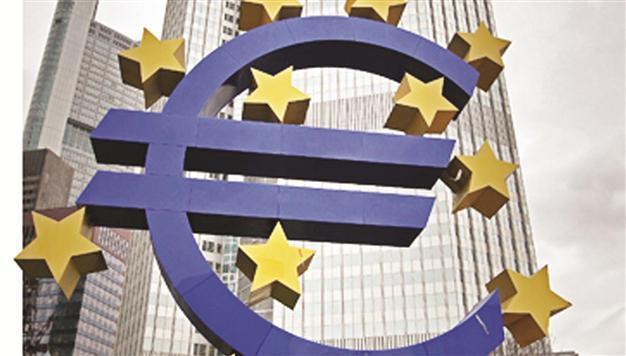Eurozone crisis drying up credit to households
FRANKFURT/PARIS - Agence France-Presse

Bank lending to private households in the euro area contracted again in December as the region’s crippling debt crisis continues to put a freeze on demand for credit, data showed yesterday.
Eurozone bank loans to the private sector declined by 0.7 percent in December compared with the same month in 2011 after already shrinking by 0.8 percent the previous month, the European Central Bank said in a statement.
The ECB has long argued that falling loans to the private sector reflects weak demand for credit rather than tight lending conditions, given the pessimistic view of eurozone growth prospects and heightened risk aversion amid the crisis.
The ECB also published eurozone money supply data, which suggest that growth in the money supply -a key guide to future inflation- slowed last month. Growth in the M3 indicator, which measures the amount of money in circulation, grew by 3.3 percent in December, compared with 3.8 percent in November. The ECB regards the M3 figure as a key guide to inflation pressures and uses it to set interest rates accordingly.
France’s trade deficit shrinksMeanwhile, at the same day the eurozone credit conditions are posted, France announced that it has trimmed its record trade deficit, as Trade Minister Nicole Bricq said in a press interview, thanks to resistant exports of agricultural, aeronautical, pharmaceutical and luxury products. Asked by the conservative daily Figaro if the 2012 trade deficit would be smaller than the record in 2011 of more than 73 billion euros ($98 billion), Bricq replied simply: “Yes!” She added that “in 2012, our exports were underpinned mainly by agrofood, aeronautics, pharmaceuticals and luxury goods.” Like neighbouring Germany, France would have to look beyond the eurozone for growth prospects, even though the 17-nation bloc currently represents 60 percent of all France’s foreign trade.
While acknowledging that the rise of the euro against the dollar and yen could represent a handicap for French exporters, Bricq said: “We must not let that be the tree that hides the forest. Before anything else we need to resolve our problems of competitivity.”
 Bank lending to private households in the euro area contracted again in December as the region’s crippling debt crisis continues to put a freeze on demand for credit, data showed yesterday.
Bank lending to private households in the euro area contracted again in December as the region’s crippling debt crisis continues to put a freeze on demand for credit, data showed yesterday.